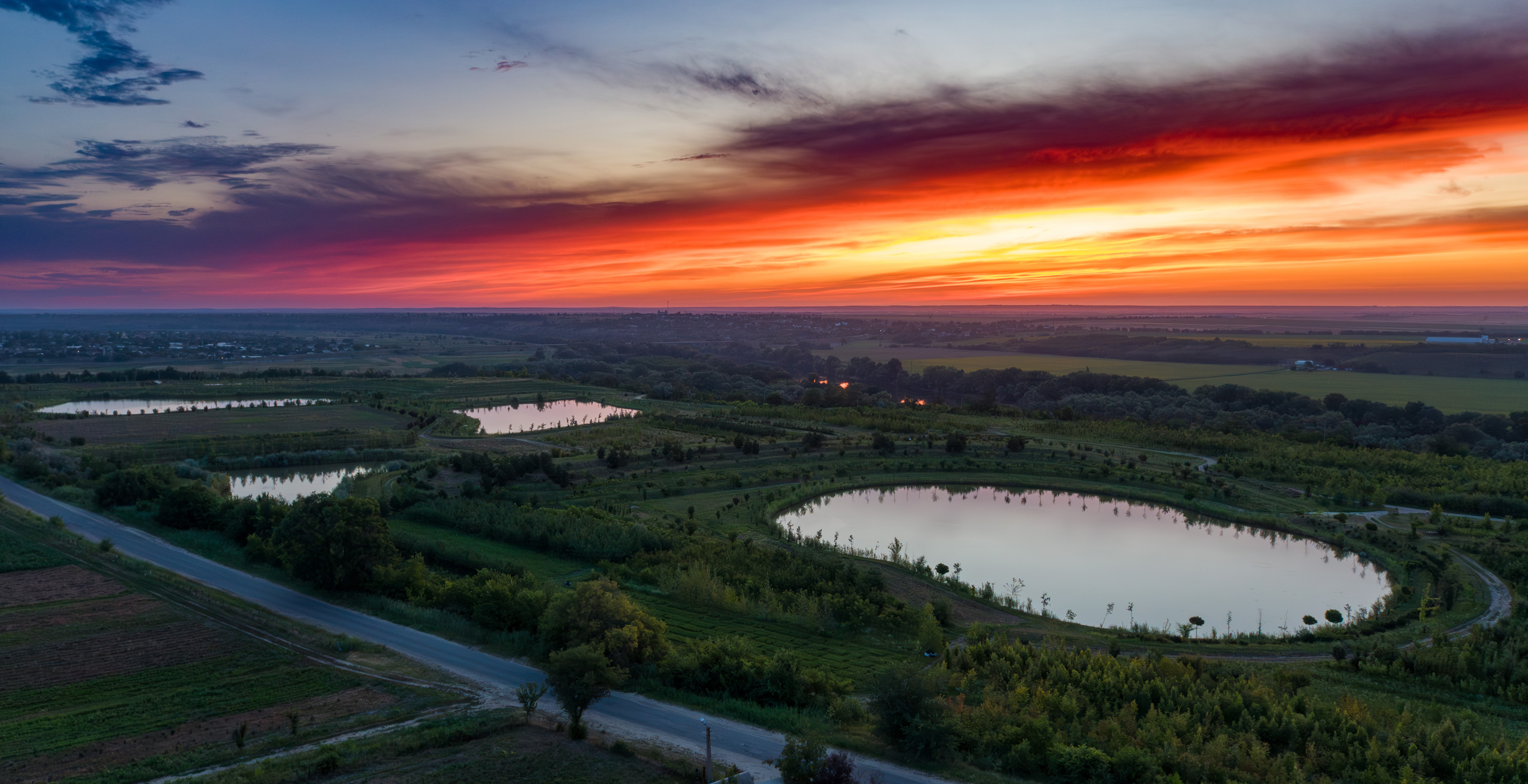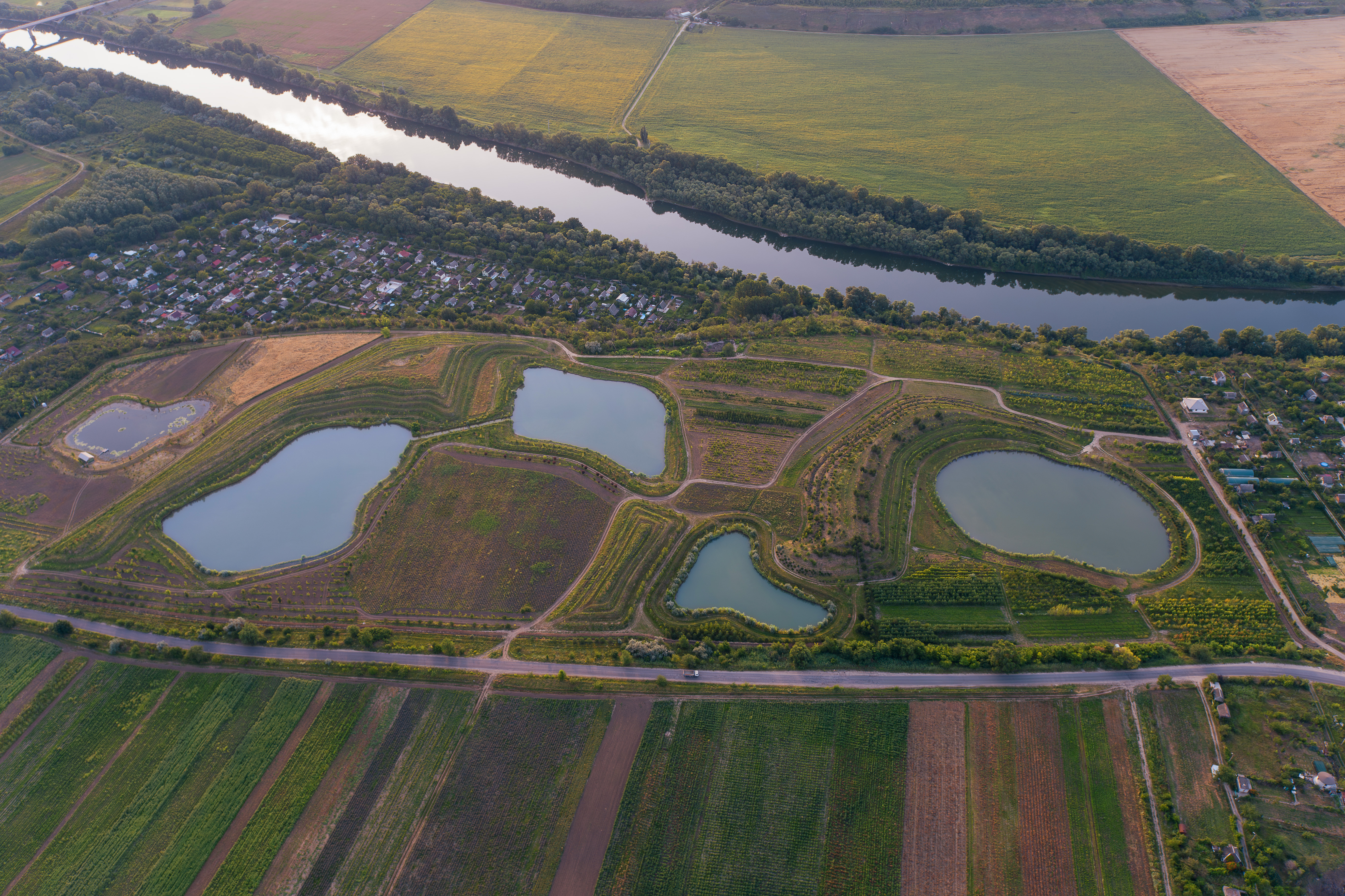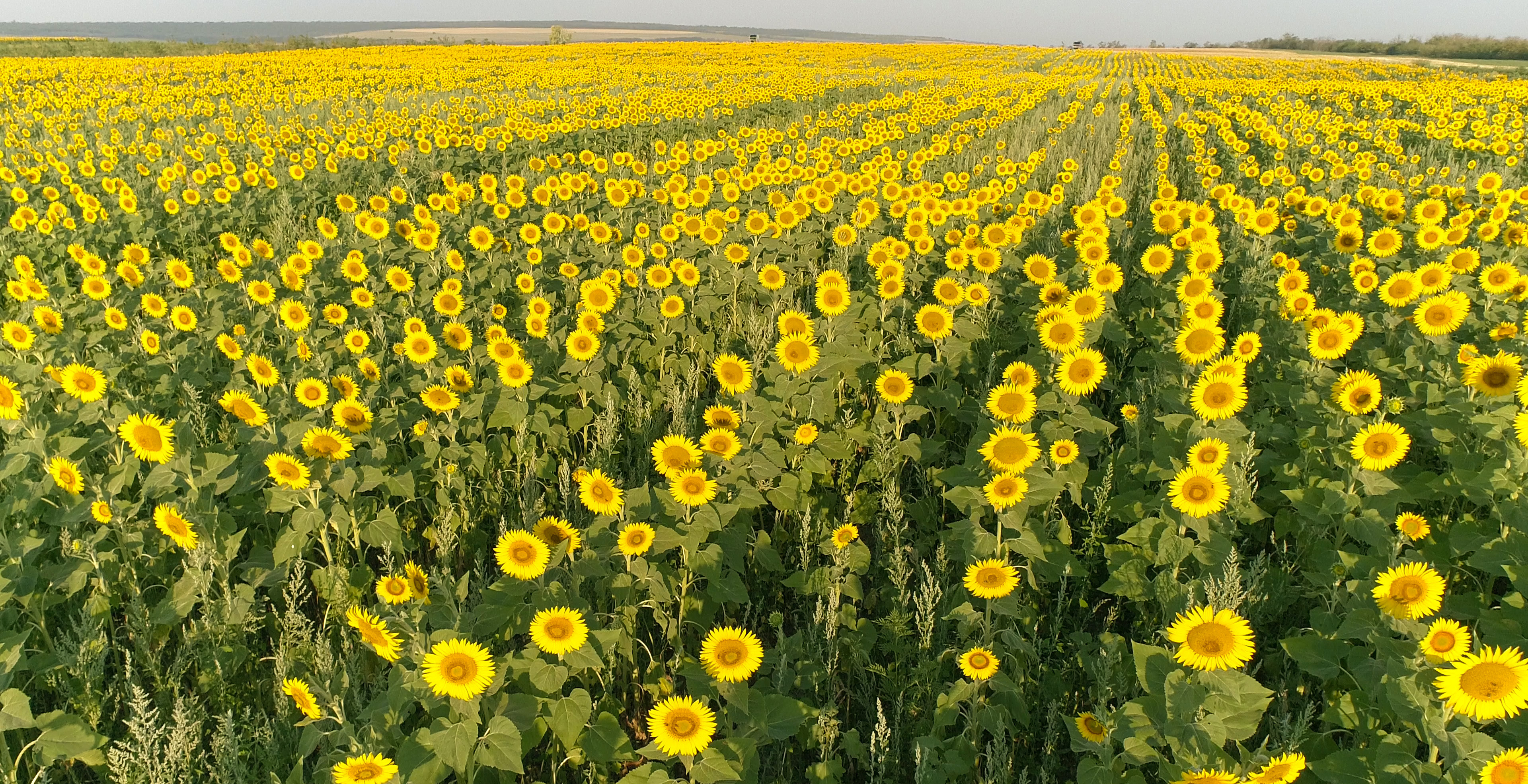Project Description

The project was developed by DAAC Hermes S.A. in collaboration with Austrian farmer Sepp Holzer, creator of the ecological farming system Permaculture Holzer, who brought in his German architect for this work.

DAAC Hermes SA acquired a former reconditioned sand and gravel quarry and decided to turn it into a blooming oasis.

The essence of the project is to restore nature to its original state, creating a natural complex in the form of a self-sustaining ecological system.
In 2015, construction work began on the 27-hectare site.
Sepp Holzer’s core principle is that a balance of water, plants, and air is essential for ecological farming. At the same time, the water surface in a closed ecological system should make up at least 10 percent.
When constructing lakes according to the Holzer system, the use of artificial liners for the lake bottoms is excluded. The bottoms of the lakes are made of natural soils using a soil compaction method specially developed by Holzer. This method ensures that water filling the lakes, which are located close to each other, seeps and connects underground, forming drought-resistant agricultural areas.
The construction and development of Vio-Park began with the creation of a series of small lakes. During the construction of the lakes, excavated soil was used to create embankment hills and terraces on the primarily leeward (northeastern) side of the reservoirs.
At the same time as the construction of the lakes, landscaping began, and in 2016, the first plantings took place. Many types of pears, cherries, apricots, apples, maples, oaks, lindens, birches, ash trees, acacia trees, plane trees, pine, spruce, fir, larch, and hundreds of other perennial plants grow here.
Organic raw materials are grown for the cosmetics factory Viorica Cosmetic.
Sage, mint, St John’s wort, melissa, nettle, burdock, hops, and many other plants have been planted. The herbs are harvested exclusively by hand. These raw materials are used in the production at Viorica-Cosmetic. The area of the Viopark undergoes annual Eco certification according to European standards. Lavender plantations have been planted. Specialists of Viorica-Cosmetic obtain useful, ecologically grown raw materials, from which extracts for cosmetics and perfumery production are made at the factory. The plants, which are not treated with chemicals, have a powerful immunity to external influences, producing phytocides – substances particularly useful to humans. Water lilies are planted in the lakes to protect them from overheating by solar energy, for water filtration, and for decorative purposes. Mollusks, fish species, and arthropods have naturally appeared in the lakes: carp, white amur, pikeperch, catfish, perch, crayfish, and river shrimp.
Vineyards have turned green on the slopes. On a field of 100 hectares, plots sown with wild rye, whose stalks reach the height of a man can be found. The cultivation of organically grown sunflower is underway. Fruit trees have begun to bear crops. By creating a balance of food and water resources, many species of wild birds and animals appeared and began to breed in the park. It is planned to transfer a division of the Viorica Cosmetic factory, which studies the properties of plants and their impact on human health, to VioPark. In the Viopark, seedlings of various plants and original seeds of vegetable crops are grown. In the future, a tourist complex with a hotel and various small industries for processing ecologically clean raw materials will be created on the territory of Viopark.
The company plans to build a tourist center, a hotel with a conference hall for off-site events. Several one-hectare estates will also be built according to the project of the future eco-village. Tourists will be able to live surrounded by nature, eat natural products and fruits of primordial plants. In the near future DAAC-Hermes S.A. plans to build an ‘Ecological Settlement’ in the center of the Moldovan Codri on an area of 300 hectares.

